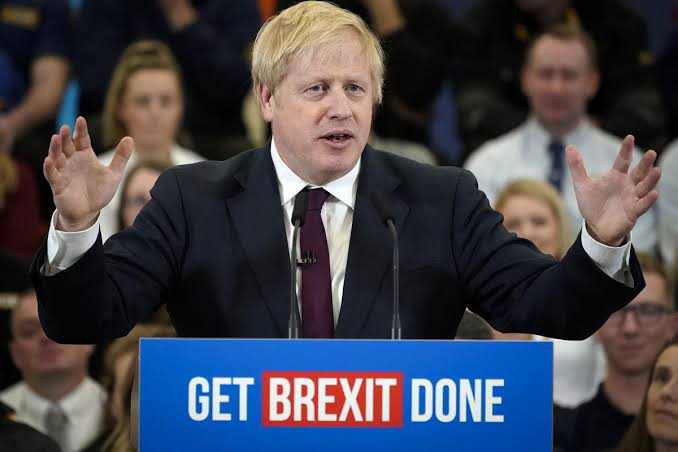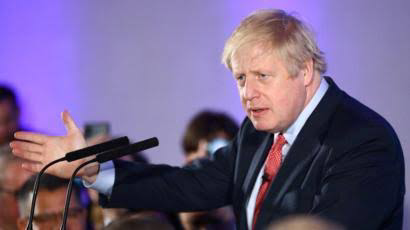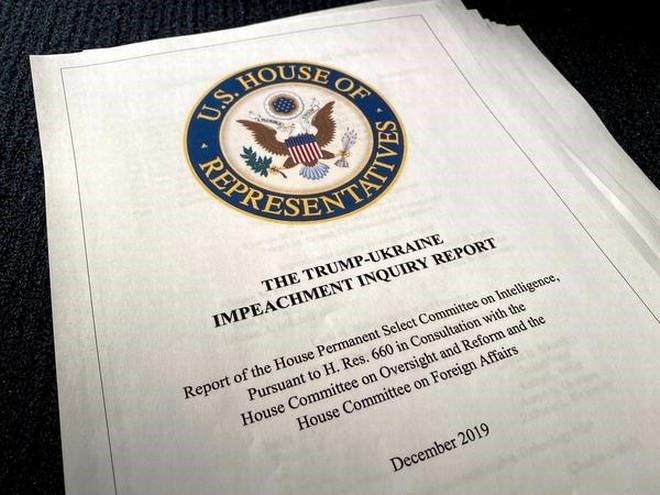Prime Minister Boris Johnson’s Conservative Party has won the UK election in reverberating fashion. Johnson visited Buckingham Palace where he asked the Queen for permission to form a government.
That’s a wrap after an astonishing 24 hours in British politics. Boris Johnson delivered a Margaret Thatcher-like win, crushing the opposition in the biggest general election victory for the Conservative Party since 1987.
The prime minister said he wanted to thank voters in the “incredible” constituencies in north-east England for placing their trust in the Conservatives. They had “changed the political landscape” and “changed the Conservative Party for the better”, he said.
“Everything that we do, everything that I do as your prime minister, will be devoted to repaying that trust,” Mr. Johnson added. “We are the servants now and our job is to serve the people of this country and deliver on our priorities And our priorities and their priorities are the same,” he said.
Leader Jeremy Corbyn said he had done “everything I could” to get Labour into power but expected to stand down “early next year” after a successor has been chosen by the party. He said the general election had been “taken over by Brexit”, the issue on which Mr. Johnson campaigned most vociferously – but other figures in the party have disagreed over the reason.
Mr. Johnson is expected to announce a minor government re-shuffle as early as Monday.
Asked whether his promise to be a one nation government meant bringing back Tory politicians like Penny Mordaunt and Jeremy Hunt – who left cabinet in July after Mr. Johnson took over – the PM said he was “not going to speculate about personalities”.
MPs will then return to Westminster on Tuesday and begin the process of swearing-in, before the Queen formally opens Parliament on Thursday with “reduced ceremonial elements”.
The Conservatives’ success means that Britain will now leave the EU at the end of January.
However, it seems unlikely to end the debate about Britain’s relationship with the EU. The country’s divisions over Brexit were exposed in the very different swings across the country. Meanwhile, at 47%, fewer than half of voters backed the Conservatives or the Brexit Party – the parties in favour of leaving the EU without another referendum. This is a point to which opponents of Brexit are likely to point in the weeks and months to come, But for now, at least, the day clearly belongs to Mr. Johnson.

While Mr. Johnson promised to use his resounding election victory to finally deliver Brexit next month, Prime Minister Boris Johnson called on Britons to put years of bitter tensions over the country’s EU membership behind them.
Mr. Johnson said the Conservatives’ victory had “smashed the roadblock” in Parliament over Brexit and put an end to the “miserable threats” of another referendum on Europe. He has also set a deadline for his Brexit move. He said: “We will get Brexit done on time by 31 January – no ifs, no buts, not maybes.”
The legislation paving the way for Brexit on 31 January is due to come before the new Parliament for the first time next Friday. There is expected to be a minor cabinet reshuffle on Monday, to fill vacant positions such as Welsh and culture secretaries. A more thorough reshaping is likely to be put on hold until February, after the UK has left the EU, with a Budget statement in March.
Mr. Johnson can be expected to do his best to honour the Conservatives’ campaign promise not to extend the period of transition out of EU membership beyond next December.
The prime minister will face difficult choices of which he has so far made no mention to the British public. To the extent that he compromises with Brussels, he will risk angering anti-EU ideologues on the Conservative hard right, for whom no Brexit will ever be pure enough.
Over the past 30 years, these ideologues have destroyed four prime ministers: Margaret Thatcher, John Major, David Cameron, and Theresa May. The rest of the country was dragged into furious arguments not of its own making as the Conservatives fought their internal wars over Europe.
Now Mr. Johnson can claim to have broken the vicious cycle. But he has done so at the cost of reshaping the Conservatives into a party that will have its work cut out to hold the UK together. UK awaits and looks forward to the further moves of Mr. Johnson.



